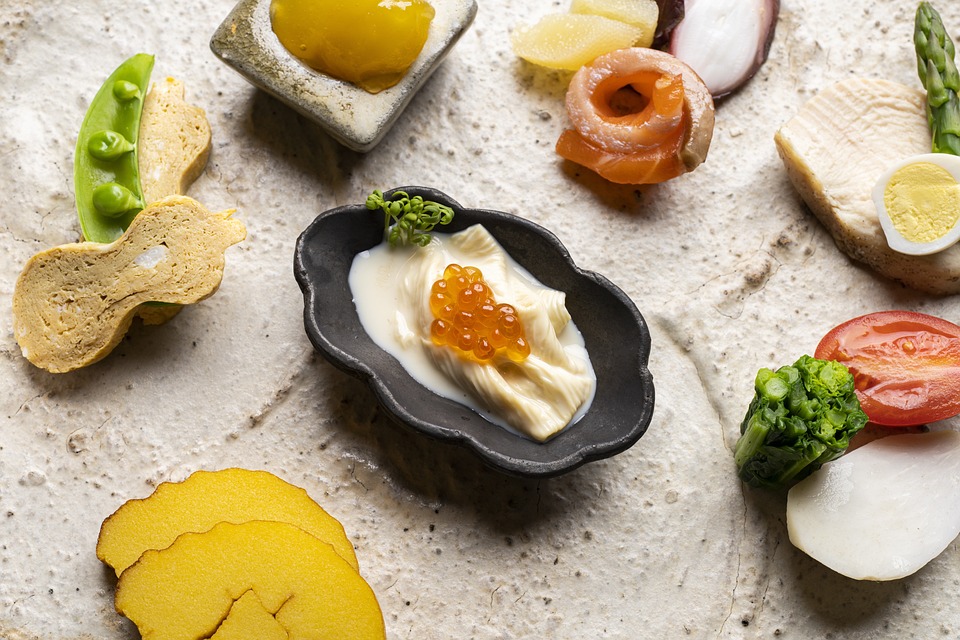[ad_1]
Fermented foods have been an essential part of Japanese cuisine for centuries. From miso and soy sauce to pickles and sake, the Japanese have mastered the art of fermentation and incorporated it into their daily lives. This article will delve into the history of fermentation in Japanese cuisine, the various types of fermented foods, and the health benefits they offer.
History of Fermentation in Japanese Cuisine
The practice of fermenting foods has been a fundamental part of Japanese culture for over 1,000 years. The Japanese were introduced to fermentation techniques by the Chinese and Koreans and adapted and refined these techniques to create their own unique fermented foods.
One of the most notable fermented foods in Japanese cuisine is miso. Miso is a traditional Japanese seasoning produced by fermenting soybeans with salt and koji (a type of fungus). It has been a staple in Japanese cuisine for centuries and is used in soups, marinades, and dressings.
Types of Fermented Foods in Japanese Cuisine
Japanese cuisine boasts a wide variety of fermented foods, each with its own distinct flavor and texture. Some of the most popular fermented foods include:
- Miso: As previously mentioned, miso is a traditional Japanese seasoning made from fermented soybeans, salt, and koji. It is often used in soups and marinades.
- Soy Sauce: Soy sauce is a staple condiment in Japanese cuisine and is made from fermented soybeans, wheat, salt, and koji. It is used to season dishes and as a dipping sauce.
- Pickles: Japanese pickles, or tsukemono, come in a variety of flavors and colors. They are made by fermenting vegetables such as cucumbers, radishes, and carrots in salt, rice bran, or vinegar.
- Sake: Sake is a Japanese rice wine that is made through the fermentation of polished rice. It is a traditional Japanese beverage and is often served during special occasions and celebrations.
Health Benefits of Fermented Foods
Japanese fermented foods offer numerous health benefits due to the presence of probiotics, which are live bacteria and yeasts that are good for your digestive system. Probiotics help maintain a healthy balance of gut bacteria, which is essential for overall health and well-being.
Additionally, fermented foods are rich in vitamins, minerals, and antioxidants. They are also easier to digest and can help improve gut health, boost the immune system, and reduce inflammation in the body.
Conclusion
Japanese cuisine has embraced and perfected the art of fermented foods, creating a diverse and flavorful array of delicacies that not only tantalize the taste buds but also offer numerous health benefits. From miso and soy sauce to pickles and sake, the Japanese have demonstrated their mastery of fermentation, making it an integral part of their way of life for centuries.
FAQs
What makes Japanese fermented foods unique?
Japanese fermented foods are unique due to the use of traditional fermentation techniques and specific ingredients such as koji (a type of fungus) that impart distinct flavors and textures.
Are fermented foods a staple in Japanese cuisine?
Yes, fermented foods are a staple in Japanese cuisine and are used in a wide variety of dishes such as soups, marinades, and pickles.
What are the health benefits of fermented foods?
Fermented foods offer numerous health benefits, including improved gut health, enhanced digestion, and a boost to the immune system due to their probiotic content.
[ad_2]





Comments